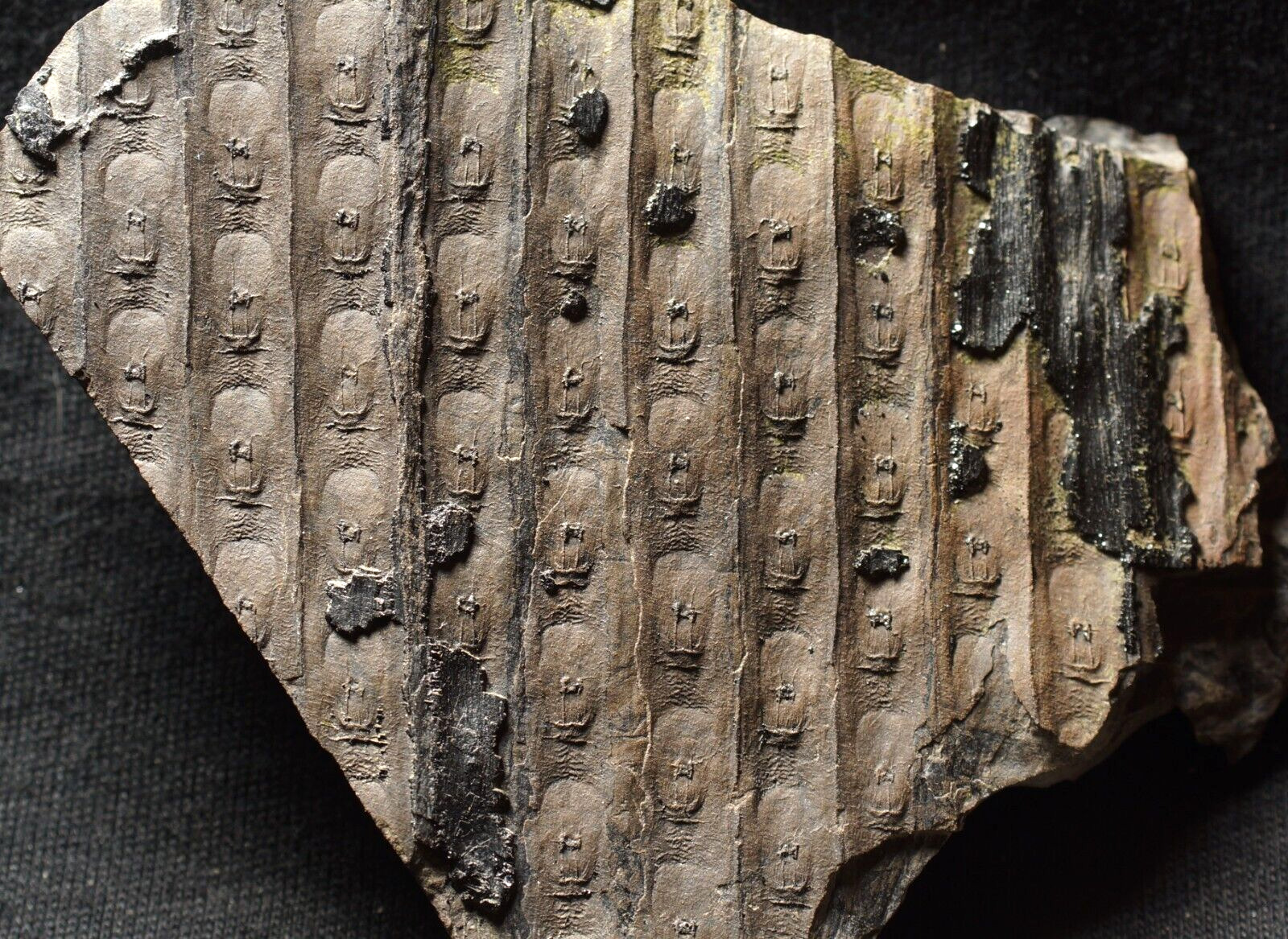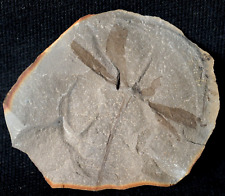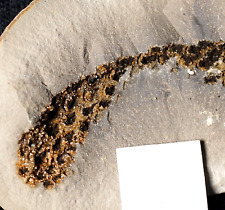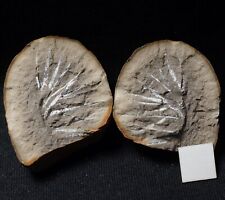Carboniferous Fossil plant Sigillaria davreuxi rarer extinct tree lycopod For Sale

When you click on links to various merchants on this site and make a purchase, this can result in this site earning a commission. Affiliate programs and affiliations include, but are not limited to, the eBay Partner Network.
Carboniferous Fossil plant Sigillaria davreuxi rarer extinct tree lycopod :
$32.00
My specimens are genuine and will be delivered with a "Certificate of authenticity, age and origin" and scientific papers allowing plant identification !!!
I combine shipping costs. Each item is different, sopleasewait with payment after purchase-I will send You a combine invoice. Usually, it will be cost of shipping the heaviest item.
Specimen: Beautiful, specimen of detailed arborescent lycopodSigillaria davreuxi BRONGNIART 1828!
Locality: All detailed data will be provided with the specimen
Stratigraphy:Upper Carboniferous,Carboniferous, Westphalian B
Age:ca. 310 Mya
Matrixdimensions:ca. 8,0 x 8,0 x 0,7 cm ( white square on pictures is 1,0 x 1,0 cm )
Description:
Upper Carboniferous , Westphalian B age species of detailed classic coal age arborescent lycopodSigillaria davreuxiBRONGNIART 1828
Some have suggested that Sigillaria was monocarpic, meaning that it died after reproduction, though this is not proven. On specimen You will see top part of plant with normal leaf scars and up row of cone scars and deformed leaf scars in top part of plant. Very interesting , rare specimen.
Sigillaria is a genus ofextinct, spore-bearing, arborescent (tree-like) plants which flourished in theLate Carboniferous period but dwindled to extinction in the early Permianperiod. It was a lycopodiophyte, and is related to the lycopsids, orclub-mosses, but even more closely to quillworts, as was its associateLepidodendron. Sigillaria was a tree-like plant, with a tall, occasionallyforked trunk that lacked wood. Support came from a layer of closely packed leafbases just below the surface of the trunk, while the center was filled withpith. The old leaf bases expanded as the trunk grew in width, and left adiamond-shaped pattern, which is evident in fossils. The trunk hadphotosynthetic tissue on the surface, meaning that it was probably green. Thetrunk was topped with a plume of long, grass-like, microphyllous leaves, sothat the plant looked somewhat like a tall, forked bottlebrush. The plant boreits spores (not seeds) in cone-like structures attached to the stem.Sigillaria, like many ancient lycopods, had a relatively short life cycle -growing rapidly and reaching maturity in a few years.
Some have suggestedthat Sigillaria was monocarpic, meaning that it died after reproduction, thoughthis is not proven. It was associated with Lepidodendron, the scale tree, inthe Carboniferous coal swamps. The clubmoss trees of the genus Sigillariaformed an important part of the coal swamps in the Late Carboniferous. Theycould reach a height up to 30 ms and bore grasslike leaves in the upper part ofthe unbranched or once divided trunk. The leaves were attached directly to thestem and they left scars when they were shed. Characteristic of the genus of Sigillariais the fact that the leaf scars were arranged in vertical rows. On the groundof these leaf scars many species have been described. The trunk was somewhatthickened at the base.The spore-cones were attached in or under the crowndirectly to the stem. They are called Sigillariostrobus.The undergroundparts of the tree can hardly be distinguished from those of Lepidodendronand they are called Stigmaria. From the Westfalian D on the number ofspecies of Sigillaria diminished strongly.
Systematic:
Division:Tracheophyta (Lycoposida)
Class: Lycopodinae
Order: Lycophodiales
Family: Subsigillariaceae
Genus: Subsigillaria
Species: Sigillaria davreuxiBRONGNIART 1828

Related Items:
Rare unknown Carboniferous fossil plant in nodule Not Mazon Creek from UK
$39.00
Rare mineralized Carboniferous cone fossil plant Ulostrobus Not Mazon Creek
$26.00
Rare unknown Carboniferous fossil plant in paired nodule Not Mazon Creek from UK
$24.00



